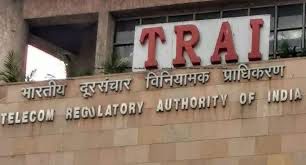 Image Source: Communications Today
Image Source: Communications Today
Highlights from August 2025
The Telecom Regulatory Authority of India has formally responded to the Department of Telecommunications’ back-reference dated July 3, 2025, addressing questions and seeking clarification on proposals for network authorisations under India’s sweeping Telecommunications Act, 2023.
TRAI’s detailed, public reply reiterates its core recommendations and, where possible, revises positions after taking into account industry and government feedback.
The ongoing exchange reflects a new era of telecommunication oversight and debate on the balance of regulatory autonomy, industry growth, and government oversight.
Backdrop: A New Telecom Law Drives Intense Deliberation
In July 2024, DoT initially called on TRAI to recommend terms, conditions, and fee structures for granting network authorisations as required by the new Telecommunications Act, aiming to overhaul how India allocates licences for networks from mobile operators to satellite communications players. TRAI, after multiple industry consultations, submitted a comprehensive set of proposals in February 2025. In October 2024, DoT further requested TRAI to evaluate provisions specifically for satellite communications authorisations.
However, upon reviewing the February 2025 recommendations, the government sent a formal back-reference to TRAI in July 2025 under powers granted by the TRAI Act, flagging that some proposals were either unsuitable or needed further refinement.
Key Issues and TRAI’s Latest Response
Terms and Conditions Under Scrutiny
The regulator addressed all DoT’s comments and suggestions point-by-point, providing clarifications and, in certain cases, revised recommendations.
Discussions revolved around the terms and conditions for granting network authorisations, including technical criteria, eligibility, spectrum access, regulatory fees, and operational obligations.
TRAI maintained that regulatory clarity and transparent fee structures would ensure competitive neutrality and attract both established and new entrants to the sector.
Satellite Communication: A New Frontier
TRAI reviewed DoT’s queries regarding satellite network licensing, key to India’s digital ambitions as low-earth-orbit constellations and remote area coverage become crucial.
The authority reinforced its earlier stance on streamlined requirements for satellite players, favoring simplified licences to boost innovation and investment, but integrated new government suggestions on national security and compliance benchmarks.
Cross-Stakeholder Consultation: Ensuring Balanced Reform
TRAI highlighted the extensive process of consulting industry representatives, consumer groups, and other government departments, arguing that its revised recommendations better reflect the sector’s evolving needs and global best practices.
The process intends to establish predictable, future-proof rules under the new Telecommunications Act, supporting India’s ambitions for digital expansion, better connectivity, and robust consumer protection.
The Implications: Autonomy, Alignment, and Industry Impact
The back-and-forth marks the growing importance of regulator-government engagement in the wake of sectoral reforms.
TRAI’s willingness to revisit, but also defend, its recommendations reveals an effort to safeguard regulatory independence while staying responsive to government priorities.
The final outcome will shape how network and satellite licences are granted, the pace of network rollouts, and how innovation is fostered in the world’s second-largest telecom market.
Next Steps
DoT will now review the latest formal response and is expected to finalize the new network authorisation regime under the Telecommunications Act, 2023.
As the sector awaits clear rules, the episode underlines the complex balancing act between making telecom processes industry-friendly and maintaining necessary government oversight for security and policy control.
Sources: Press Information Bureau, Tribune India, Business News/ANI
Advertisement
Advertisement




